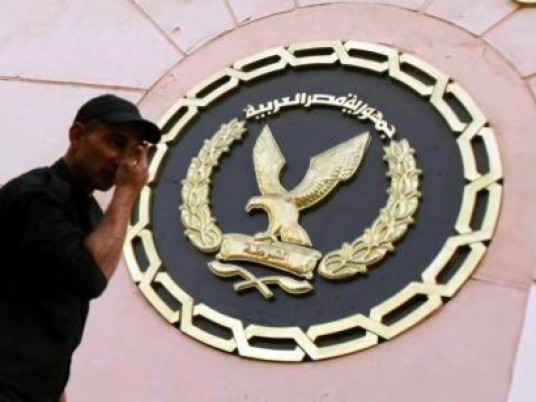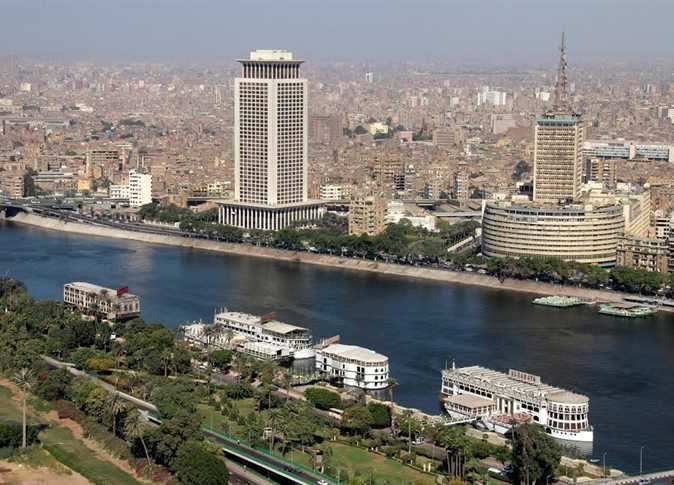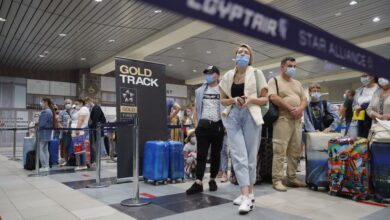Three youths — an Egyptian, American and Australian — who traveled from Cairo to the Nile Delta city of Mahalla on 11 February to cover a planned day of civil disobedience were detained for two days before being released Monday night.
After being mobbed by bystanders in Mahalla, they were handed over to security forces amid claims that they were instigating, and even funding, acts of unrest in the city. According to their lawyer, Sayed Fathy, these claims were largely dismissed by prosecutors due to conflicting accounts by the claimants.
Australian freelance journalist Austin Mackell headed to Mahalla, along with Derek Ludovici, a US graduate student at the American University in Cairo, and Aliya Alwi, an Egyptian translator, to report on a planned protest march in the city. The three were interviewing Kamal al-Fayoumi, a worker-activist at Mahalla’s Misr Spinning and Weaving Company, in public near Shaun Square when they were assaulted by a group of angry bystanders. The cab driver who had transported them was also assaulted, and his car was damaged by the angry crowd that gathered around them.
All five were arrested and transported to military intelligence in the nearby city of Tanta. Prosecutors there ordered the release of Fayoumi and the cab driver on Sunday. Mackell, Ludovici and Alwi were transferred back to a police station in Mahalla Sunday before being released Monday night. The three are reportedly on their way back to Cairo.
According to human rights lawyer Ragia Omran, who has been closely involved with the case, investigations and interrogations were concluded this morning.
"Obviously the foreigner issue is being used as propaganda to portray this situation as an act of meddling by foreign hands in Egypt. Xenophobia is the way the authorities are trying to spin it. There's somebody from the embassy assisting Derek at the moment," said Ludovici's friend, Beth Warner.
"Derek hasn't been involved in any sort of trouble before, and his paperwork is all valid." Warner said, "but I'm worried that they may continue to hold him and mix his case up with that of the foreign NGOs case."
Egypt is currently trying 43 NGO employees, 29 of whom are foreigners, for working for illegally funded NGOs, in a case that has sparked tension between Egypt and the US.
Ludovici was reportedly able to make a phone call to his parents in the US. "He said he's not being abused or mistreated. He's doing well, just worried about being deported," Warner added.
Ludovici is writing an MA thesis about the labor movement in Egypt.
Mackell has previously visited Mahalla without any problems. In April 2011, he produced documentary videos about labor issues and the textile industry in this city. Upon hearing of industrial workers’ actions planned for 11 February, the freelance journalist said he had hoped to cover the protests in order to better understand the working-class demands behind them.
Mackell has been residing and working in Egypt since early 2011. His writings — primarily on labor, economy and finance issues — have been widely published in media outlets including the Guardian and the Scotsman in the UK, Australia's ABC, The Canberra Times, Lebanon's Al-Akhbar English, Canada's CBC, and America's CBS. He maintains a blog called The Moon Under Water.
Prior to coming to Egypt, Mackell reported from numerous hotspots in the Middle East, including Lebanon during the 2006 Israeli invasion and Iran during the popular protests against the 2009 elections results. He moved to Cairo last year to report on the 25 January revolution and Egypt's transition to democracy.
There are a number of other incidents in which foreign journalists have been detained and harassed in Mahalla.
American graduate student and photojournalist James Buck was detained at a Mahalla police station for 24 hours, along with Mohamed Maree, his interpreter, after a planned strike at Misr Spinning and Weaving Company was thwarted on 6 April 2008. An uprising ensued in this city on 6 and 7 April, and Maree was locked up for nearly three months, while hundreds of others were also arrested. Three workers from the textile company — Fayoumi, Wael Habib, and Kareem el-Beheiri — were also imprisoned.
During another strike at Misr Spinning and Weaving Company in February 2001, this reporter was denied entrance into the mill. His photos were erased by military police officers, and he was forcefully removed by an armed escort to the outskirts of the city while being threatened with referral to a military tribunal.




